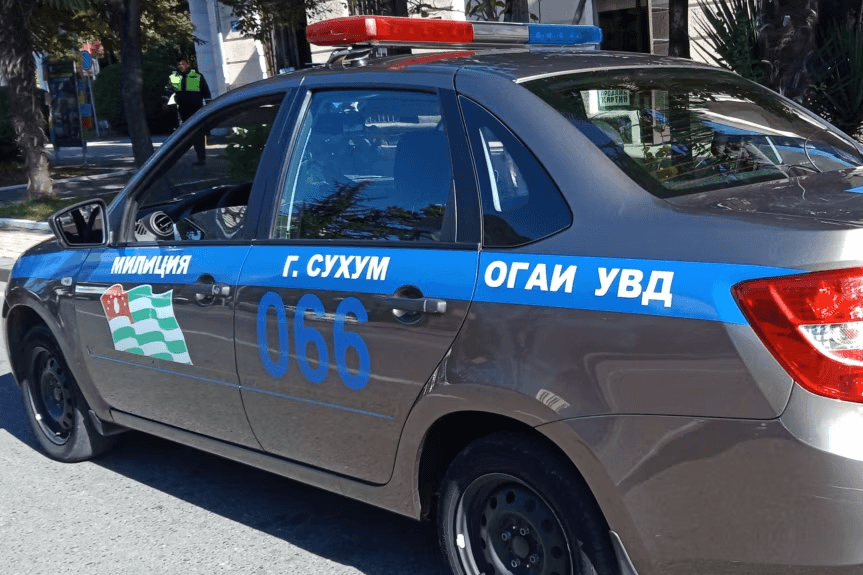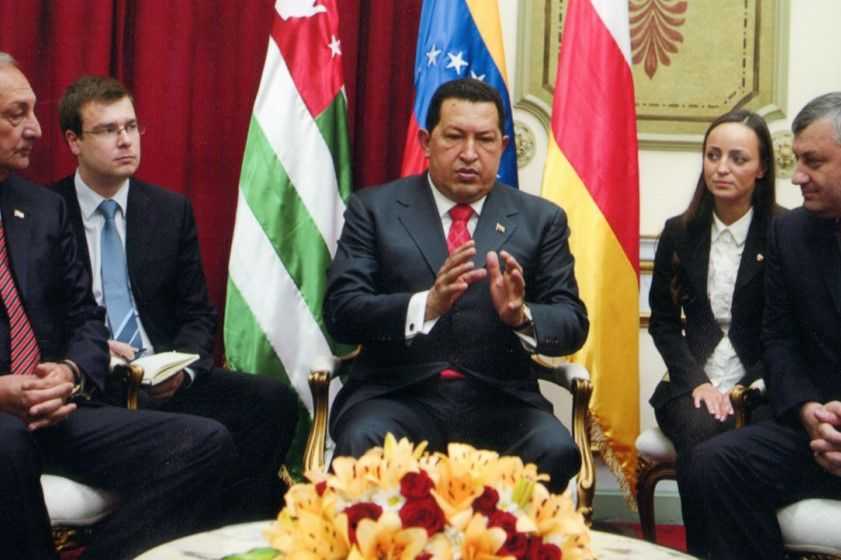
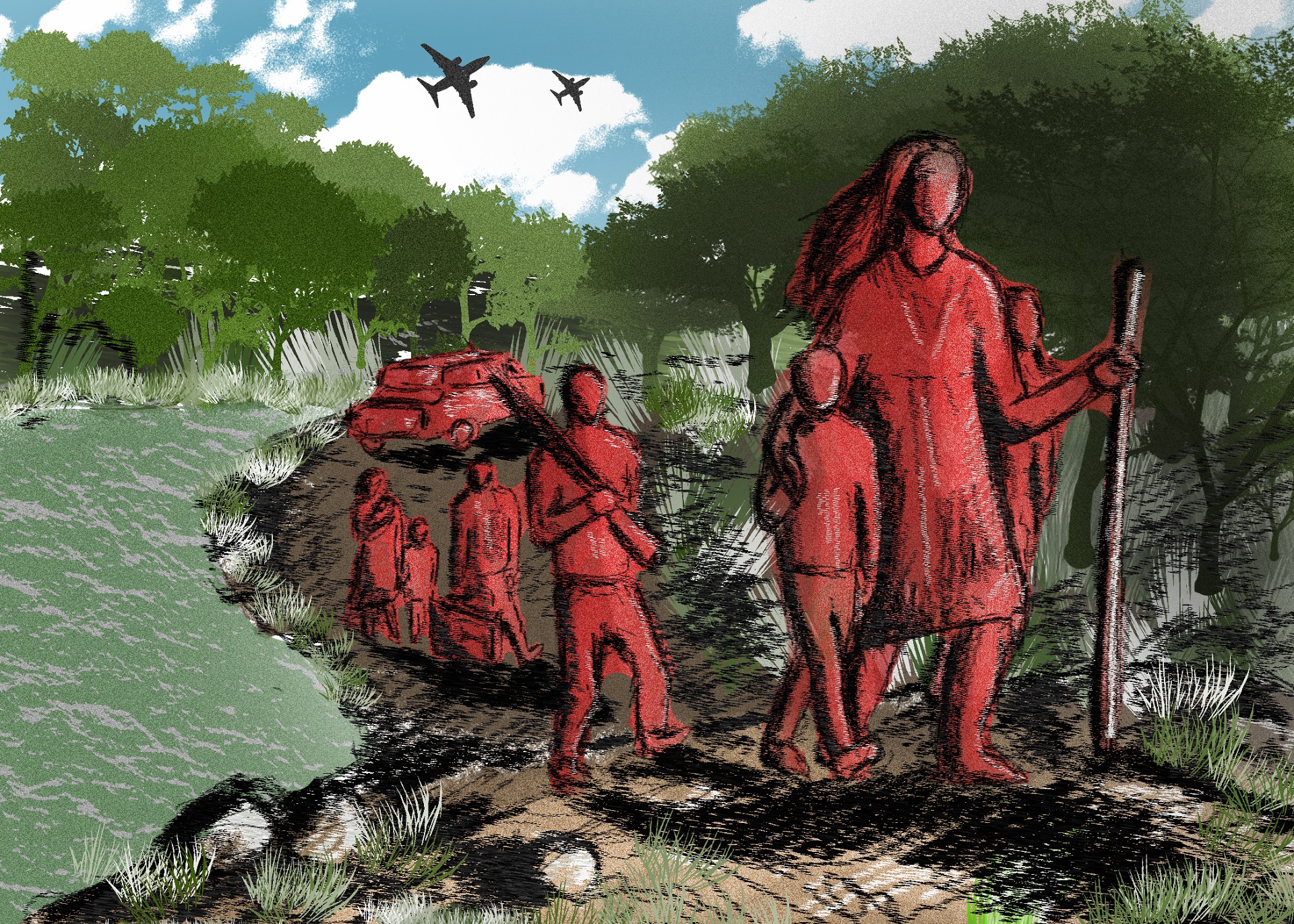
The Kodori Valley, populated mainly by Svans, was the only corner of Abkhazia under Georgian Government control before the August 2008 War. According to the Tbilisi-based Government of the Autonomous Republic of Abkhazia, around 2,860 people lived in the valley before the war, all of whom fled their homes. Only 55 families have returned; Raisa Khachvani, 62, is still waiting to do so.
‘Imagine you lose everything, you no longer have anything, and are starting life from scratch. All this I, and many other people living in this building, have personally experienced twice.’
‘My family and I have experienced being refugees twice. The first time, I, with my husband and three children, had been living in Estonka, [a village 20 kilometres south-east of Sukhumi in the Gulripshi District]. Until the very end, we did not leave the house; we were waiting for the situation to calm down and hoped that there would be a reconciliation. We only left on 26 September [1992]. In the meantime, the [Macharka] bridge had closed.’
‘For eight days and nights, we lay on the ground with our children. These were the last days of September. The children became ill. We did not have any food, not even bread. We barely survived.’
‘Eventually, we arrived in Upper Abkhazia; we started a new life in the Kodori Valley. To be more precise, we continued life here, because my husband was originally from the Kodori Valley.’
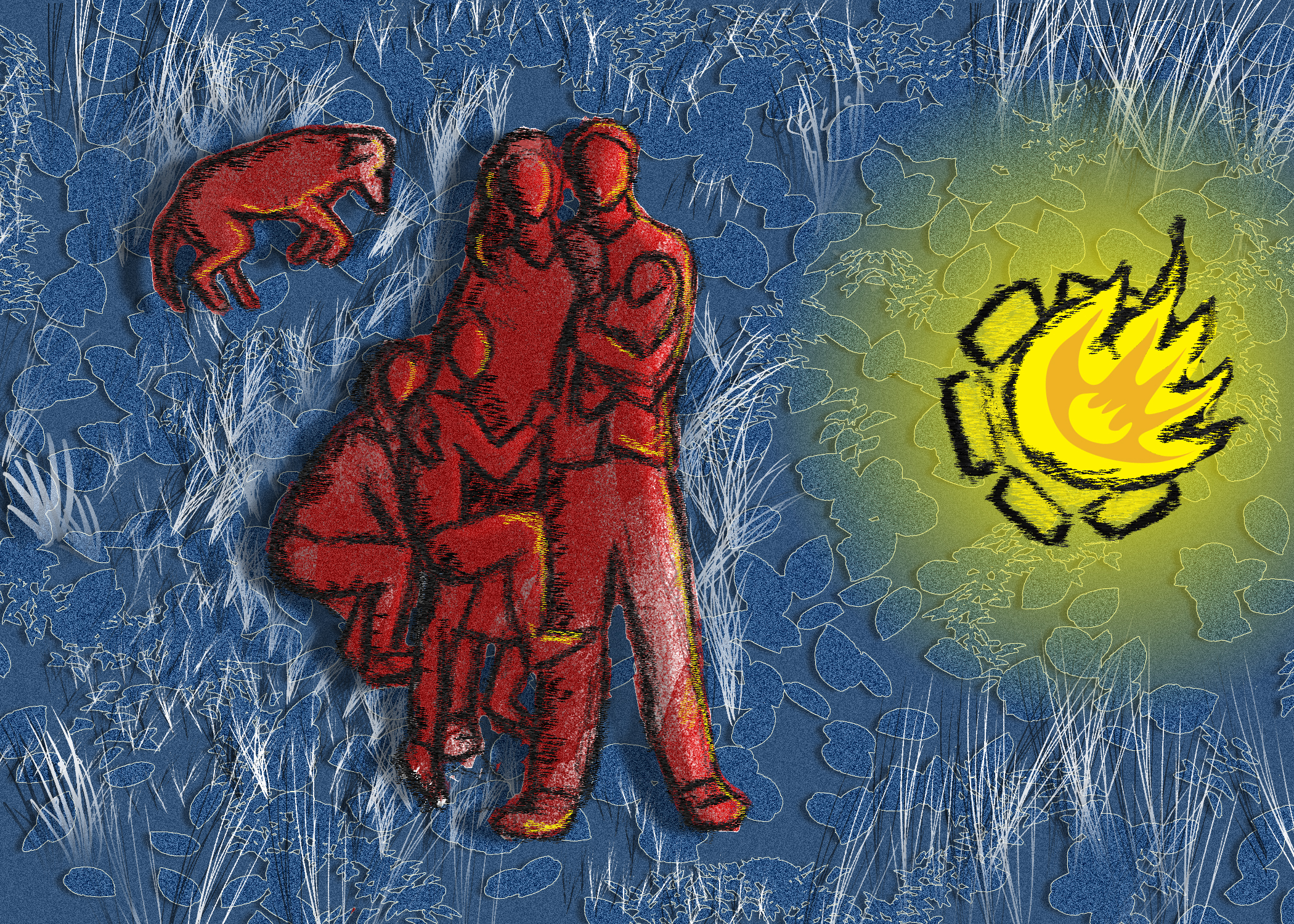
‘We had a good relationship with Abkhaz’
‘During the 1992–1993 war, the Abkhaz could not take the valley because local people created a group called Monadire (‘hunter’). Locals knew the valley very well, which was our strength. My husband was a part of this group; he defended the border. Until the Georgian government brought interior ministry forces into the Kodori Valley, the Abkhaz would come to our people and our husbands visited them. We had a good relationship with one another.’
‘When we lived in Gulripshi [District], I remember that we had a good relationship with the Abkhaz, with Armenians — with everyone. Even the day the war started, we had that relationship.’
‘In 1992, before the war, the Abkhaz started acting strangely. There was one Abkhaz woman who said to us: “If you have anything you can use for transportation, take it”. But we didn’t pay attention to these words; we didn’t have even a hint of what was to come. We could not believe all of what happened, not until the final day.’
‘The time came to escape’
‘In Kodori, we lived near the airport, in a village called Gentsvisi. In August [2008], we were outside when Poti was being bombed. I remember telling my husband that this would also happen here; not two days later, it happened.’
‘When the siege started, my husband was not at home; he was in a neighbouring village for a funeral. They left the dead unburied. Later, when the situation calmed down a bit, the family managed to bury the dead woman.’
‘Both wars were very unpredictable. In August, there was a lot of chaos and confusion; it was terrible. Cattle gathered in front of our gate; the cows were mooing, dogs were barking. We were all together during the shelling, giving each other support. Some took some bread and cheese and went into the forest, as if there they would be hidden from the bombs.’
‘The soldiers could not defend us; the time came to escape. At first, only the women and children left the valley. It was impossible to take anything with us; I took only what I was wearing. The only thing I took, first from Gulripshi and then from Kodori, was a souvenir that had been gifted to us; we could not leave it. We also took one photo album.’
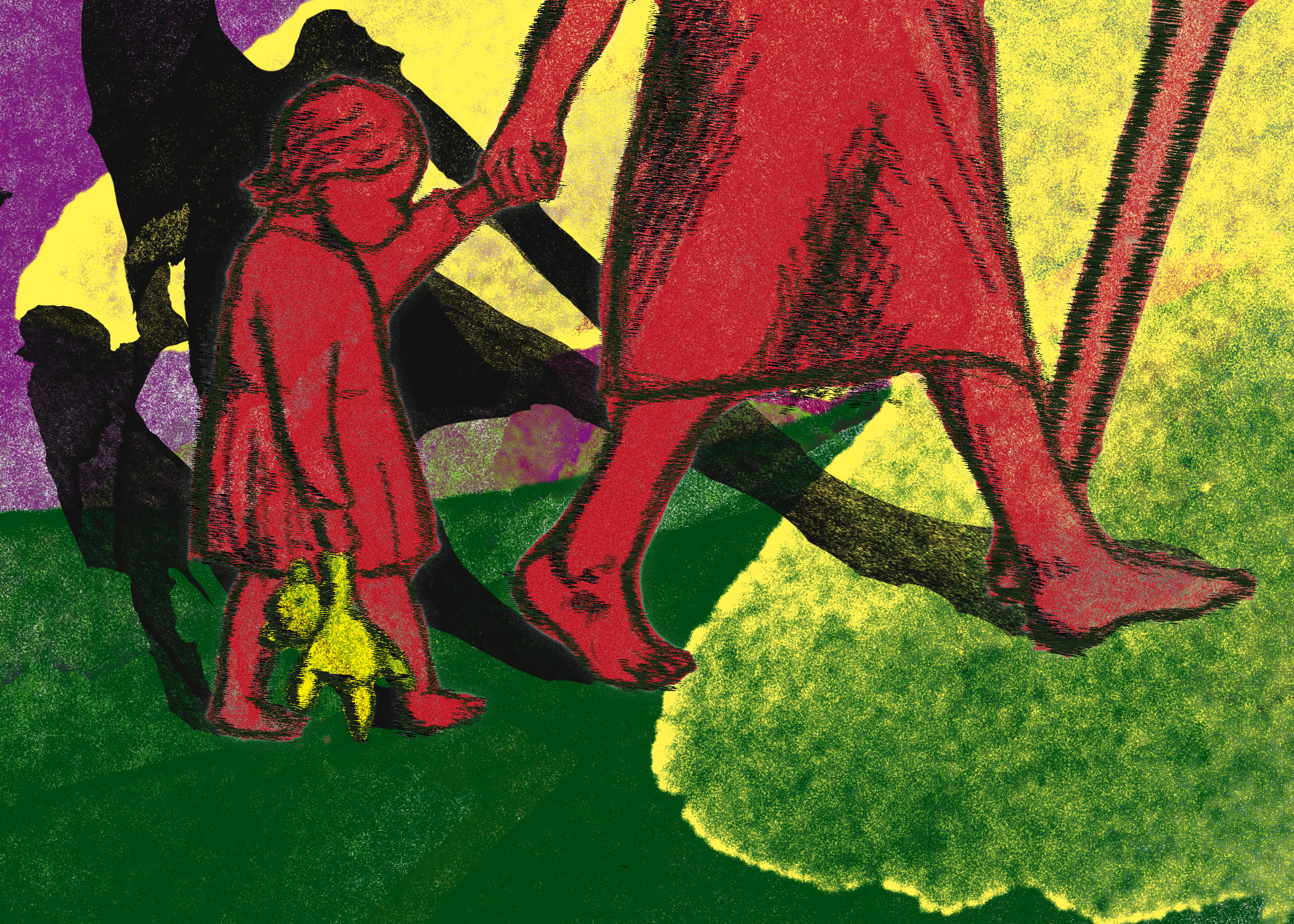
‘Some went barefoot. We picked up anybody we met on the road. Warplanes had been flying above us. Our car was big; sometimes it went fast, other times it stopped. We reached and passed Sakeni, where some cows had gathered and been killed by a bomb.’
‘My husband and most of the men didn’t leave when we did. They didn’t expect the situation to escalate further. But after the airport was bombed and a shell fell on a neighbour’s house, they realised it was impossible to stay, and left Kodori on foot through the forest.’
‘We had a very sensitive dog, and when as we left Kodori, he looked at us as if he were crying. He followed us as we left; he ran after us until we reached Chuberi. In Chuberi, he couldn’t keep up with the car and had to stay behind.’
‘A month later, my husband returned to Chuberi and when he arrived he saw our dog. He belonged to a new family. My husband recalls that when he looked at him and called: “Simba”, the dog approached him. He looked at Robert as if he were disappointed in him, and then went back. Robert called him again: “Simba, come to me, come to me”, but he did not return.’

‘We didn’t have fatalities in Kodori. But during the war, many young people from the valley died — approximately 40. One wounded soldier from the valley took a shell and blew himself up in order to avoid captivity.’
‘Did the Russians throw us out from there?’
‘As far as I know, our house is no longer standing. It is a forest now, instead of a house. I’ve heard that any houses with good roofs, the roofs were taken away by Russian troops.’
‘Life was very different there. There were potatoes, beans, whatever else you sowed — everything was fertile.’
‘My grandchildren are very interested and are always asking me: “Grandmother, did the Russians throw us out from there?” ‘
‘I have three children and nine grandchildren. All of my children are married and have their own families.’
‘The air strike caused us to lose the valley. If it had not been for the attack from the air, they would not have taken Upper Abkhazia and people would have defended their own land as well as they could.’
‘All of us only dream to be back in our homes’
‘After the end of the military action, many returned to the valley, but no one in our village did. There were more than 30 villages in the valley. It is said that Russian soldiers have built a military base there.’
‘However, we cannot adapt to living here. When we gather and start talking, it’s clear none of us can live happily here. All of us dream only of being back in our homes. Our houses always appear in our dreams.’
‘After coming to Kutaisi, the government gave us this flat, which is our private property. My husband and I live here. I am a housewife; my husband is employed by a Chinese company. We are both pensioners and the government helps us with a monthly social pension, which is ₾45 [$17].’
‘It’s not right that just because you are a refugee you are always dependent on the government. That is why when we started our lives here, we bought one calf — they multiplied, and now we have seven in total. It was our only livelihood when we struggled to survive. We keep them near here, in the yard of the former airport.’
‘I would not wish on anyone the experience of being a refugee. It’s such a large trauma. It affects your health, your nerves first of all. Every day and night, we think and worry about where we were and where we are now.’
‘In the Kodori Valley, in the yard of our house, we had a pear tree. We had a pool that spring water flowed from as well. I don’t want anything in this life except to sit under that pear tree and to be back in the Kodori Valley.’
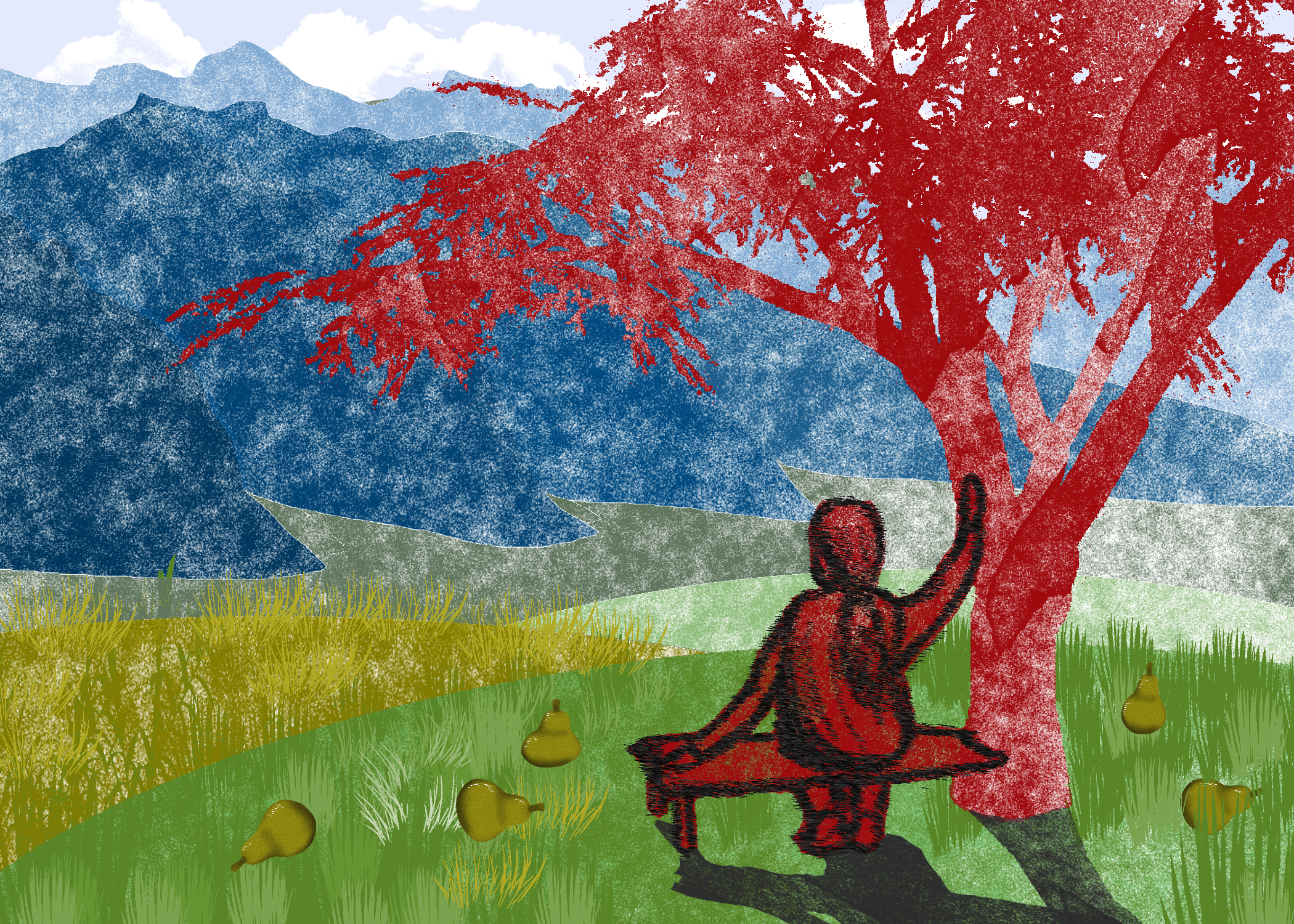
All place names and terminology used in this article are the words of the author alone, and may not necessarily reflect the views of OC Media’s editorial board.




